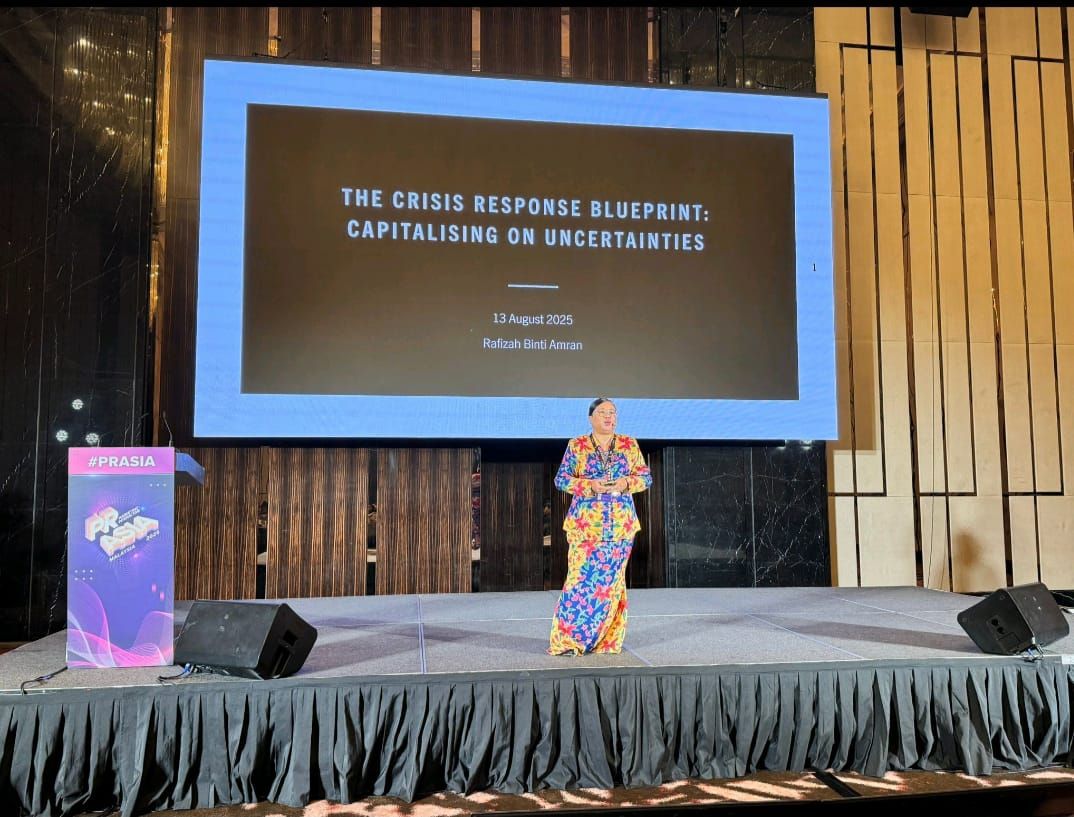Capitalising on Uncertainties: Insights from Rafizah at PR Conference Asia 2025

Crisis Response Blueprint: Rafizah's Perspective at PR Conference Asia 2025
Yesterday at the PR Asia Conference 2025, I spoke about turning crises into opportunities to regain trust. The session ended with three great questions from the audience, which I thought were worth sharing here.
1. Is “not reacting” a good option?
Not reacting in a crisis is still a reaction. Whether it works depends entirely on the situation. The first step is to call a crisis code, categorise the situation, and evaluate your options. Sometimes silence is the smartest move and allows the storm to pass. The difference between being smart and being reckless is having a strong, tested crisis framework that guides when to speak, what to say, and when to stay quiet.
2. What if your bosses do not take your counsel?
The better question might be: why wouldn’t they? Communications and PR is about building trust and brand equity with stakeholders — and your internal stakeholders are no different. You need to position Comms as a subject matter expert, just like Legal. That means moving from a “doer” role to a leadership role. It takes work, and it means making everyone’s business your business so you can give leaders a helicopter view of the situation.
3. How do you flatten the information funnel?
Compliance, risk, internal audit and legal are not the enemy. They exist to help you protect the organisation and ensure your messages are delivered safely. The key is to build relationships with them long before a crisis hits. Understand their concerns, find common ground, and work together on a crisis response that satisfies all sides.
The part I didn’t get to cover in detail
Technology is now a critical ally in crisis management. Digital tools allow you to gather real-time data, analyse trends, gauge public sentiment, and forecast how a situation might evolve. Invest in these tools and in your own skills. The more you upskill and self-learn, the more effectively you can act. Technology does not replace judgement, but it strengthens it.
The role of SOPs
Standard operating procedures may not be glamorous, but they should never be “audit documents” that live in a drawer. Learn them inside out. In a crisis, you may need to operate with a “good enough” plan while working on a better one in the background. SOPs can buy you that time. If they don’t work, change them, but only after you have tested them through tabletop exercises, simulations, and roleplays.
The bigger picture
We live in an era defined by unpredictability. With the right approach, uncertainty can become a catalyst for resilience, even in the middle of a crisis.
And here is the truth many do not want to hear: communications specialists will remain at the bottom of the information ladder until they prove their value as trusted advisors to the crisis management committee. You do that by actively helping to solve the crisis, not by sitting in the war room waiting for updates. Step up and say, “For this crisis, this is the strategy we will deploy and why, and these are the resources I need.”
Download a copy of the presentation deck here: The Crisis Response Blueprint - Capitalising on Uncertainties by Rafizah Amran
PR Asia Conference 2025 is brought to you by MARKETING INTERACTIVE
